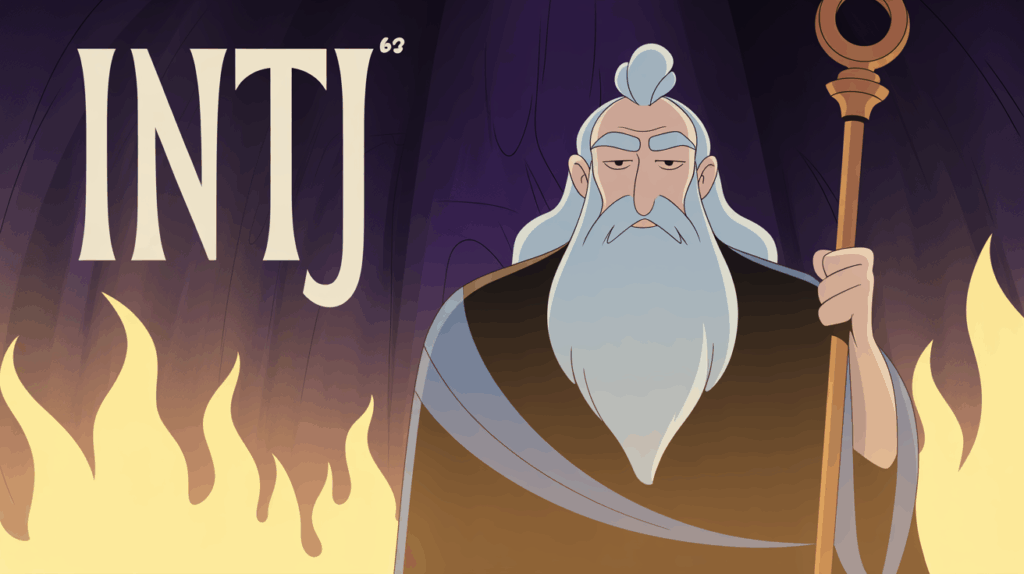
Introduction 🌱
Greek mythology is filled with powerful figures, each embodying timeless qualities. Among them, Hades—the God of the Underworld—stands out for his quiet authority and enigmatic nature. If we were to assign him an MBTI type, Hades aligns strongly with the INTJ. In this post, we’ll analyze Hades MBTI and reveal 5 mysterious INTJ traits that define his role in myth and how they connect to modern personality insights.
Personality Overview 🔮
The INTJ type, often called the “Mastermind” or “Architect,” is defined by strategy, independence, and vision. According to 16Personalities, INTJs rely on planning and rational thinking. When we look at Hades in Greek mythology, his calm demeanor, strategic decisions, and mysterious aura mirror these traits. The Hades MBTI perspective shows how mythology and personality theory overlap, giving us a deeper way to understand both.
Hades was not a god of chaos or impulse. His control over the Underworld reflected an INTJ’s natural tendency to create order in complexity. He maintained boundaries between life and death, ensuring balance in a way that demonstrates foresight and stability—qualities that modern workplaces might associate with strong leadership.
Key Traits 📚
Here are 5 mysterious INTJ traits that Hades demonstrates:
- Strategic Authority
Hades rules the Underworld with precision and order. Like an INTJ leader, he ensures structure and balance without unnecessary chaos. This shows how INTJs often take leadership roles that others overlook, managing the unseen yet essential systems. - Reserved Presence
Unlike Zeus’s thunder or Poseidon’s waves, Hades commands with quiet power. This aligns with the INTJ’s tendency to lead from the background, preferring influence over showmanship. His restraint made his authority feel inevitable, not forced. - Detached Rationality
INTJs often detach emotions to focus on logic. Similarly, Hades judges souls with fairness, focusing on rules rather than sentiment. In myths, this neutrality highlights how INTJs value principles above personal bias. - Mysterious Independence
INTJs value independence and solitude. Hades, dwelling in the Underworld away from Mount Olympus, reflects this preference for autonomy. His distance was not weakness, but a strength that allowed him to rule on his own terms. - Vision Beyond the Surface
Just as INTJs see long-term outcomes, Hades sees beyond life into the eternal. His role represents foresight, legacy, and the hidden depth INTJs embody. This long view shows how INTJs often think generations ahead, shaping structures that outlast themselves.
These Hades MBTI traits demonstrate how mythological archetypes mirror personality tendencies. In the same way Hades shaped the unseen world, INTJs often operate behind the scenes, guiding outcomes in ways others might not notice immediately.
Comparisons ⚔️
When comparing Hades (INTJ) with Zeus (ENTJ) and Poseidon (ESTP), the differences are clear. Zeus takes bold, extroverted action, while Poseidon thrives on energy and immediacy. Hades, however, stays in the shadows, carefully calculating before making decisions. This highlights the contrast between outward dominance and inward strategy—the hallmark of INTJ leadership.
Even compared to Athena, another figure often associated with INTJs, Hades carries a different energy. Athena represents intellectual clarity and wisdom in battle, while Hades embodies endurance and quiet authority in governance. Both highlight the INTJ preference for foresight, but Hades adds depth by ruling in solitude.
Lessons 💡
What can modern readers learn from the Hades MBTI analysis?
- Quiet strength can be as powerful as loud authority.
- True leadership doesn’t always need recognition—it thrives on stability and order.
- Independence and foresight can guide long-term success.
- Embracing mystery and introspection can lead to deeper wisdom.
- Working in the background can be just as impactful as being in the spotlight.
For professionals, this means an INTJ style of leadership can stabilize chaotic projects or organizations. In personal life, adopting some of these traits—calmness, planning, and independence—can help individuals navigate uncertainty with clarity.
Final Thoughts 🌟
Hades may not be the most celebrated Olympian, but his traits reveal the timeless power of the INTJ type. Through the lens of Hades MBTI, we see strategy, independence, and mystery shaping a leader who thrives beyond the spotlight. By reflecting on his character, we uncover insights that help us understand INTJs—and ourselves—with more depth. In a world that often rewards the loudest voices, Hades reminds us that quiet strength, patience, and vision can be just as transformative.